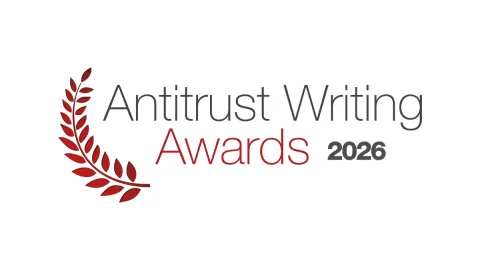Increased FDI scrutiny: Details from the European Commission's 5th Annual Report on FDI screening
October 30, 2025
The 5th report on the screening of foreign direct investments ("FDI") published on 14 October 2025 by the European Commission ("Commission") provides an overview of enforcement activities and legislative developments in the EU as well as indications into what investors can expect in future transactions.
Background
At least for now, the decision on whether to screen, approve, impose remedies, or block a particular FDI lies solely with the EU Member State in which the investment takes place. However, the so-called EU Cooperation Mechanism enables both the Commission and other Member States to exchange information, to consider whether the transaction should be notified in other EU Member States, and to flag possible security or public order risks from FDI in other Member States or to EU-level programmes or projects.
The Annual Report covers past trends on EU FDI screening, covering both screening at a Member State leve24 and through the EU Cooperation Mechanism. The below draws out the key points from the Annual Report.
Slightly softer FDI into the EU, but higher M&A
2024 saw a slowdown of FDI inflows into the EU due to a decline in foreign greenfield investments. This was only partially offset by a modest increase of M&A investments. While the US and the UK remained top foreign investors, the number of M&A deals originating in China and Hong Kong increased by 23% year-on-year in 2024, following a decline of 20% in 2023.
As for Member States receiving FDI, Germany was the preferred destination for M&A investments, while Spain received the most greenfield investments.
Despite large volumes of filings, vast majority of notifications cleared unconditionally
Member States with national screening mechanisms in place handled a total of c. 3,100 requests for authorisation and cases that were initiated by the authorities themselves (ex officio cases) in 2024, up from c. 1,800 in 2023 and c. 1,400 in 2022. The high number of reported investments is strongly influenced by Sweden which reported a very high number of cases in its first full year of operation of its FDI screening mechanism.
National authorities authorised most of the formally screened investments without any conditions (86%). 9% were approved with conditions or mitigating measures, which is slightly lower than in 2023. Similar to 2023, only 1% of the investments were blocked. The remaining 4% of the filings were withdrawn by the parties before a formal decision was taken.
EU Cooperation Mechanism remains core to EU FDI screening
Member States submitted a total of 477 notifications under EU Cooperation Mechanism, similar to the 488 cases submitted in 2023. Of the 477 cases notified in 2024, the Commission closes the vast majority (92%) in Phase 1 (i.e. within 15 calendar days following the notification by the screening Member States). Similar to 2023, 8% of the notified cases were subject to an in-depth security risk assessment by the Commission (so-called Phase 2).
The main sectors for Phase 2 reviews were manufacturing (50%) and information and communication technologies (19%). In almost half of the cases in the manufacturing sector, the investment in critical technology (mainly in relation to defence, semiconductors or aerospace) was the factor triggering in-depth assessment. The second largest factor was related to FDIs in critical infrastructure, followed by the supply of critical inputs. Access to sensitive information (including personal data) accounted for 5% of the cases in the manufacturing sector leading to Phase 2, more than double the figure for 2023.
Of the 477 cases notified in 2024, the six main jurisdictions of origin were the US, the UK, China (including Hong Kong), Japan, Canada and the United Arab Emirates. Noteworthy is the rise of transactions from China, whose share increased by 50% from 6% in 2023 to 9% in 2024. In contrast, the share of FDI from investors in the United Arab Emirates fell from 6% in 2023 to 3% in 2024.
Legislative developments in Member States
In 2024, two Member States saw their recently adopted FDI screening mechanisms became operational, and 10 Member States introduced amendments to their existing screening legislation. By October 2025, 25 of 27 Member States have FDI screening legislation in place. The remaining two jurisdictions, Cyprus and Croatia, are preparing legislation for the establishment of national FDI screening frameworks.
The Annual Report also noted what it considered to be "noticeable differences" between the screening mechanisms of Member States, calling out the following differences:
(i) for what constitutes a formal screening of an FDI (which triggers the notification of an FDI to the EU cooperation mechanism);
(ii) the timelines of the national screening procedure;
(iii) the sectoral coverage of national screening mechanisms; and
(iv) notification requirements by the transaction parties to the national authorities.
The proposed revision to the EU FDI Screening Regulation is currently being discussed in the so-called "trilogue negotiations" between the Commission, the Council (composed of Member States) and the European Parliament, and aims to reduce these differences.
Outbound Investment Review
The Annual Report also notes that, in January 2025, the Commission adopted a recommendation on reviewing EU outbound investments. The Recommendation applies to three technology areas of strategic importance (semiconductors, artificial intelligence and quantum technologies) and calls on Member States to assess risks to economic security potentially arising from EU outbound investment transactions. Member States are asked to provide a comprehensive report on implementation of the Recommendation and any risks identified by 30 June 2026.
Conclusion
The Commission's 5th Annual Report on FDI screening shows that a declining number of investments into the EU encounter an increasing number of different national FDI screening regimes. A silver lining to this fragmented landscape of national FDI screening regimes is that it has not (yet) led to more submissions under the EU Cooperation Mechanism. But more importantly, that the vast majority of the notified investments at a Member State level were cleared unconditionally, and that the vast majority of notified investments under the EU Cooperation Mechanism were cleared in Phase 1, confirms the openness of Member States to FDI.
With the revised EU FDI Screening Regulation being progressed, investors should expect less fragmented national FDI regimes. However, the exact scope of harmonisation remains to be seen, as does the timing of the revised regime.
The other major milestone to which investors should closely follow is the publication of the Member States' reports on outbound investment review. This is expected in the second half of 2026.
You may also like







